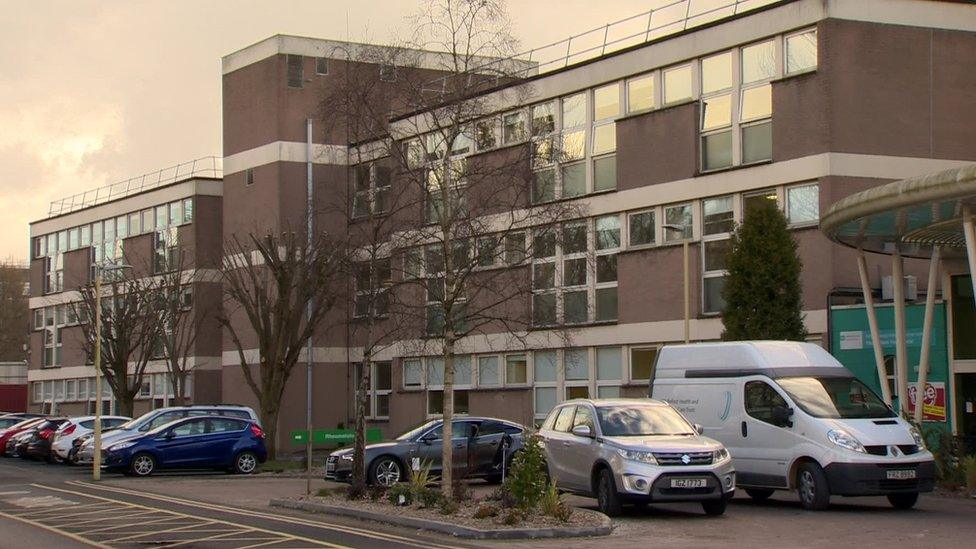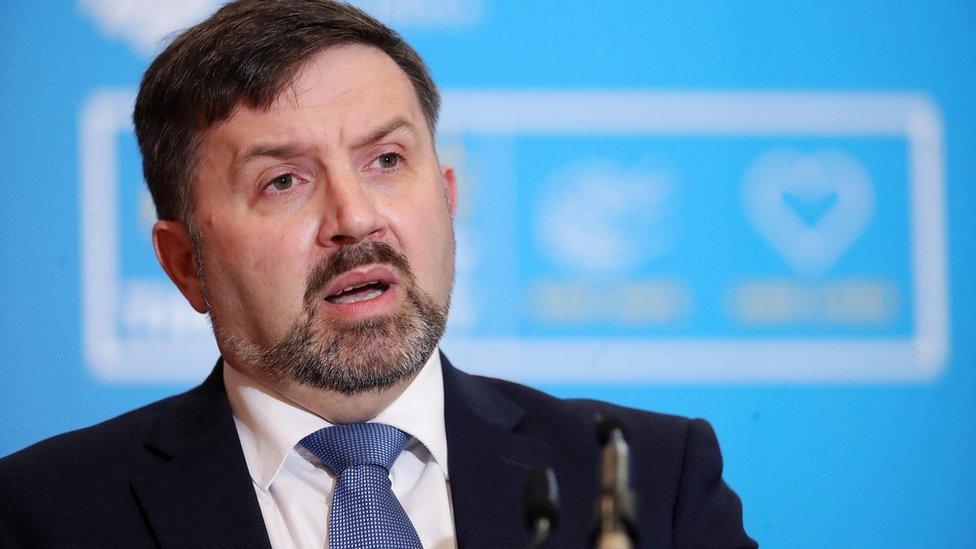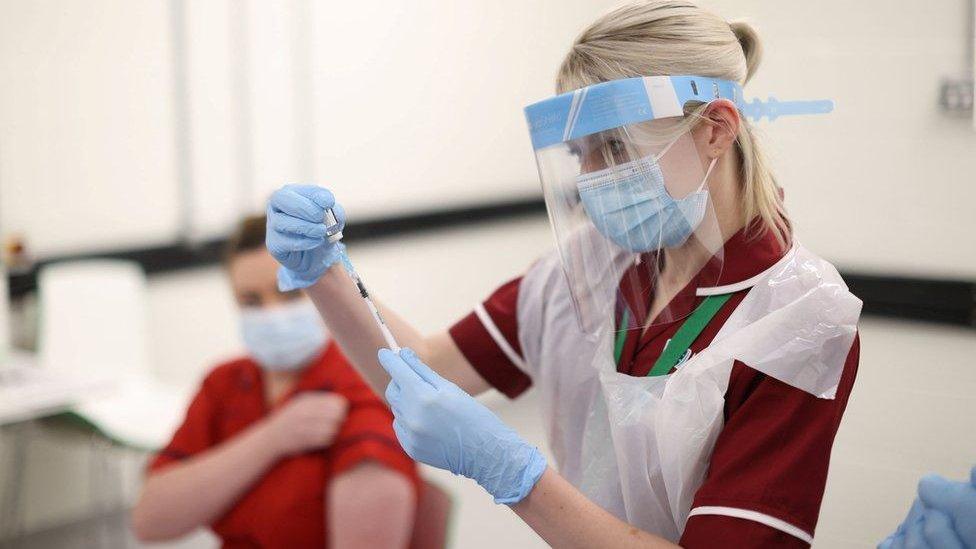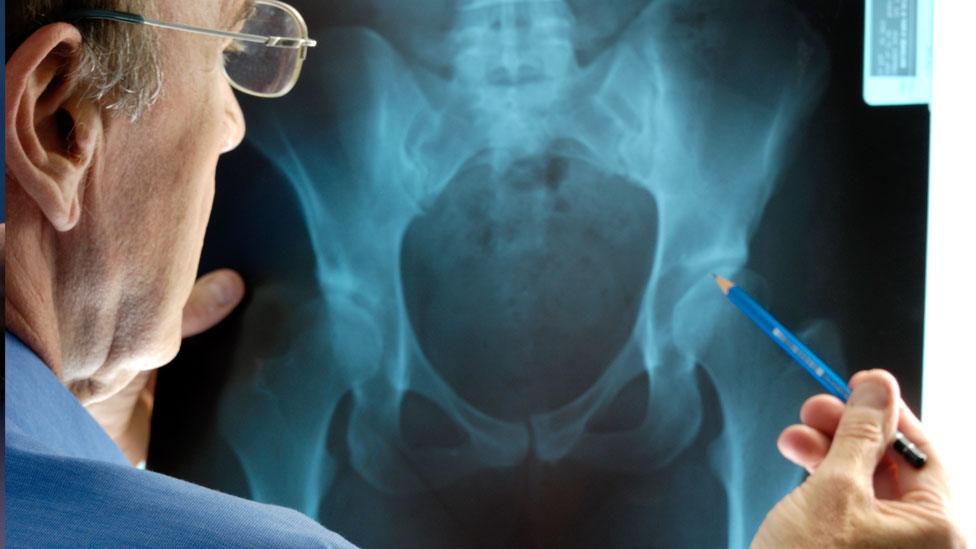NI Health: Trainee orthopaedic surgeons' warning to Health Minister
- Published

Trainee orthopaedic surgeons have written a letter to the Health Minister Robin Swann expressing concern about a significant reduction in elective surgery in Northern Ireland.
It warns that elective surgery should make up around half of their training.
It says without it they may be unable to move to a consultant position.
The letter says the "inability to provide training could severely compromise" the emergency orthopaedic trauma service in NI.
Letters have also been sent by the training programme director and orthopaedic consultants raising similar concerns.
Dr David Swain, a consultant orthopaedic surgeon and professional advisor at the Royal College of Surgeons said there was an urgent need to "ramp up" orthopaedic activity.
"We are acutely aware that hospitals are under immense pressure to reduce waiting lists whilst continuing to deal with the challenges of Covid-19," he said.
"However, the ongoing redeployment of nursing staff and the decision to drastically reduce elective orthopaedic surgery at the start of the pandemic, means there have been far less opportunities for surgeons in training to gain the experience they need to qualify as consultants," he added.
"This includes in theatre, outpatient clinics, wards and multidisciplinary team meetings.
"Put starkly, if there is no training today, there will be no surgeons for tomorrow.
"If you're 80 years of age now and going on some of our waiting lists for a hip replacement, there is the potential that you may not survive long enough to get that hip replacement on the NHS and I think that is a shocking indictment of the system of which I am a part."
'Risk of delays'
A surgical trainee, who acts as a representative for his colleagues, has said elective orthopaedic activity in the Belfast Health Trust averaged 5% of pre-Covid levels in the last three months of 2021.
Graham Finlayson, from the British Orthopaedic Trainees Association, told a Royal College of Surgeons Ireland webinar that elective orthopaedic surgery has been "decimated" in Northern Ireland.
"Trainees at my stage and I include myself in this statement, feel poorly prepared for elective practice as consultants because we have not had the necessary exposure.
"There is an enormous risk of delays to training progression, but the worst case scenario is that if this doesn't improve the training scheme is not sustainable," he said.
Before the pandemic about 70% of Northern Ireland's elective orthopaedic activity took place at Musgrave Park Hospital in the Belfast Health Trust.
It is understood there are currently two operating theatres running on average each day at Musgrave Park Hospital.
Before the pandemic there were up to nine theatres in operation each day.
The BBC understands, for the first time ever, some trainee orthopaedic surgeons, who were due to qualify this summer, may be unable to complete their training programme.
Last year, Mr Swann said elective surgery hubs were to be established to ensure planned operations would continue through the winter.
But sources have told the BBC there has been very little activity to date.

Before the pandemic about 70% of Northern Ireland's elective orthopaedic activity took place at Musgrave Park Hospital in the Belfast Health Trust
The President of the British Orthopaedic Association Professor John Skinner said elective surgery "essentially stopped" throughout the UK at the start of the pandemic.
He added while it had gradually built up again this had not happened in Northern Ireland.
"In Northern Ireland the problem is elective orthopaedic care pathways are being used as a resource to fund other parts of the health system.
"What happens is orthopaedic beds get used for other patients, the wards get taken over for other types of patients, the nurses get redeployed for other types of surgery to acute, urgent and other types of care.
"Although these patients may not be urgent, as in need to be operated on day one, this is really important treatment that makes a massive difference to patients."
Professor Skinner said the reduction in elective orthopaedic surgery in Northern Ireland would have a "massive knock-on effect" on training.
"Now more than ever we need to get trainees trained to a high standard to get them out as fully trained accredited consultants so that they can start treating more patients," he added.
"They're not getting the number of cases they need to see and be part of to get to the levels where they can qualify at the end."

Last year, Robin Swann said elective surgery hubs were to be established to ensure planned operations would continue through the winter
A spokesperson for the Department of Health said it is "continuing to explore how to increase training opportunities and access to elective activity so as to mitigate the negative impacts of pandemic response to trainees' progression".
"The Elective Care Framework published in June with an investment of more than £700m over five years for Elective Care, sets out a range of short, medium and longer term actions.
"One of the actions of the framework is the delivery of a recovery plan for orthopaedics, which will set out priority actions, targets and timescales to bring orthopaedic activity back to commissioned levels and to increase activity as rapidly as possible."
'Clinical need'
A spokesperson for the Belfast Health Trust said: "Throughout this pandemic we have had to develop additional capacity to ensure the most clinically urgent patients receive the right care.
"As a result, staff were asked to carry out roles outside their normal working environment and this has resulted in reduced access to theatre capacity for some services.
"We need to ensure that the services we deliver remain safe and have reviewed our winter service plans and made some adjustments." As a result of those adjustments it is very likely some services will be impacted by these changes but they are required to ensure the safety of everyone in our care."
The spokesperson added that to ensure the trust "have the staff to provide care to those most in need" it "may have to downturn some services in our hospitals and in the community and this will be prioritised by clinical need".
"To manage exceptionally high staff absence Belfast Trust may again need to redeploy qualified staff who are currently working in other roles and ask that they to go back into critical community services or on to certain wards," it added.
Related topics
- Published23 July 2021

- Published15 June 2021
